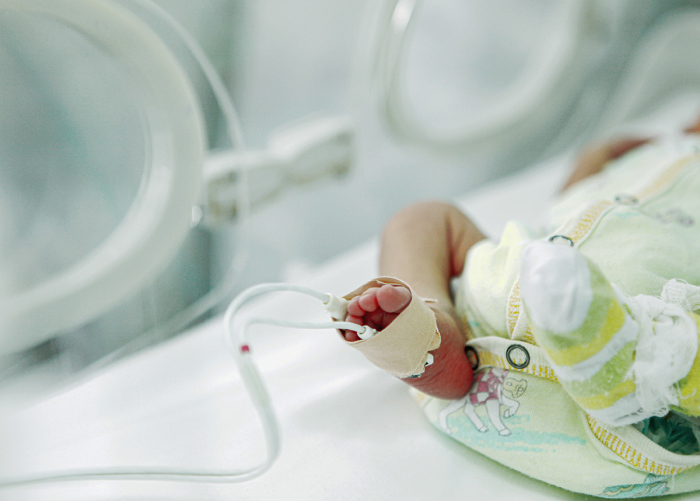Court grants genetic test for 4 couples after IVF mix-up at Israeli hospital

A court has ordered a genetic test be performed on four couples who underwent IVF after an embryo mix-up resulted in one woman giving birth to a child biologically unrelated to her, an incident that some claim is not uncommon in the fertility industry.
The couples are part of a group that originally consisted of 22 people that the Rishon Lezion hospital and the Health Ministry believe had a potential genetic link to the infant. The number was narrowed down to the four couples who underwent IVF at the Assuta Rishon Lezion Medical Center in Israel at the same time as the birth mother.
Jennifer Lahl, director and producer of the 2010 "Eggsploitation" documentary examining abusive practices in the fertility industry, believes the case is indicative of the ethical problems surrounding practices like IVF.
“The fertility industry is fraught with stories like this,” the filmmaker said in an emailed statement to The Christian Post. She noted that embryo mix-ups are not uncommon, citing a case People magazine reported on last year that resulted in two California couples raising one another’s babies.
She also pointed to cases where fertility doctors have used their own sperm to create embryos for their female patients and surrogates who carry and give their own children away without realizing it.
“Where there are human hands involved in the making of life in the laboratory, there will be more cases of human error,” she wrote. “There are no winners in stories like these, and perhaps the biggest losers are the children.”
As Haaretz reported Wednesday, the birth mother and her partner are registered as the baby’s parents in the Population Register. The couple wants to continue raising the baby, whose name is Sophie. According to The Times of Israel, the pair is suing the clinic for nearly $3 million, accusing the facility of negligence and causing the couple distress.
An anonymous hospital employee claimed in September that she had witnessed several situations where the clinic mishandled embryos, according to The Times of Israel. One of Assuta’s IVF laboratory managers claimed in a statement a week later that a “certain percentage” of women who undergo IVF carry an embryo that is not their own.
The Assuta Rishon Lezion did not immediately respond to The Christian Post’s request for comment.
Last month, the group of couples asked the Rishon Letzion Family Court to allow for a genetic test alongside an additional couple, but Judge Hani Shira rejected the request. However, if no other couples were found genetically compatible with the baby, then the judge agreed to allow the test.
“They (the appellants) should not be denied the possibility of finding out their connection to the minor child and in effect to be prevented the option of access to the courts, and by doing so to deny their option of ever finding out about their biological child,” Shira wrote in her decision.
“The appellants’ uncertainty along with the hope that perhaps the minor carries their DNA is causing human suffering that should be put to an end by performing the test.”
The judge also wrote that conducting the test “conforms with the minor’s right to know her origin.”
Sophie was born in October to a couple that is not genetically related to her. The parents oppose the performance of a genetic test, with their lawyers indicating that they intend to appeal the decision. They argue that since they have already begun to raise the child, it’s unfair to take the baby away from them.
The Health Ministry considered shutting the clinic down due to the incident involving the couples, according to The Times of Israel. Instead, it ordered the facility to reduce its operations to 5,000 treatments a year instead of 10,000.
As The Christian Post previously reported, IVF involves manually combining sperm and egg in a laboratory dish before transferring the embryo into a woman’s uterus. The practice has raised concern among certain groups, including Illinois Right to Life, who warn that embryos are often discarded or fail to survive the thawing process, resulting in the deaths of unborn children.
Samantha Kamman is a reporter for The Christian Post. She can be reached at: samantha.kamman@christianpost.com. Follower her on Twitter: @Samantha_Kamman





























